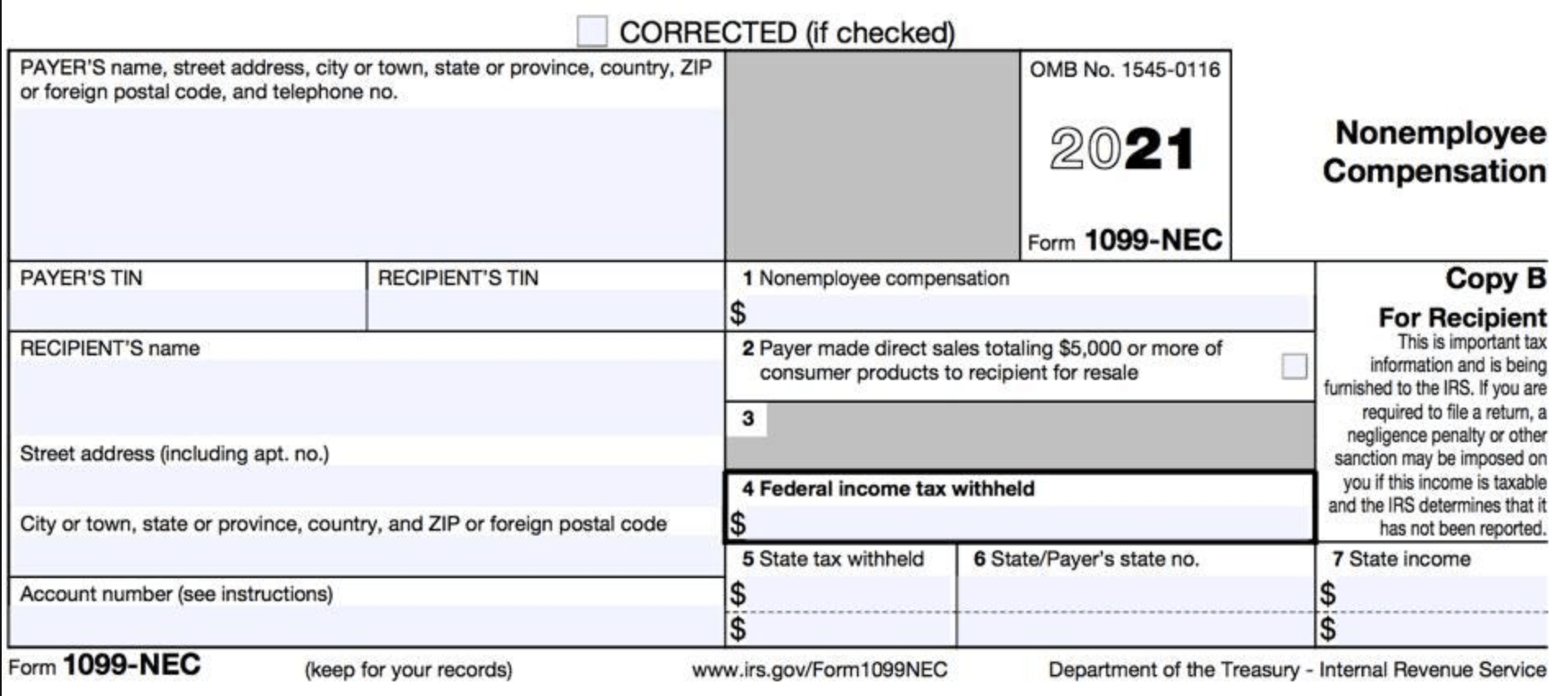Filing Twitch taxes involves understanding your 1099 form and self-employment tax obligations. As a Twitch streamer, you'll receive a 1099 form by January 31 if you earned income on the platform. This form reports your earnings, which are subject to self-employment taxes. To file, gather all necessary forms, calculate your income, and identify deductible expenses like equipment and software. Use tax software or consult a professional for accuracy. Filing correctly can save you from penalties and optimize your tax savings. Consider using tools like Bonsai Tax to automate deductions and streamline the process, potentially saving you $5,600 annually. Stay compliant by filing quarterly taxes if required, and ensure you meet all IRS deadlines to avoid interest fees.
By January 31, Amazon (the owner of the interactive live streaming service) will send you a Twitch 1099 who made income on the platform in the last year. Taxes are a complicated subject, but in this guide, we'll have an expert walk you through, step-by-step, what you need to do to properly file your Twitch taxes.
We'll go over the forms you'll receive as a Twitch streamer, the taxes you'll be responsible for, tips for tax deductions you can take advantage of, and more. Without further ado, let's dive in.
First, let's go over the taxes you'll owe.
Note: If you want an easy way to handle your Twitch taxes, try Bonsai Tax. Our app automatically scans your bank account/ credit card statements to discover tax write-offs you can take advantage. In fact, the majority of our users save $5,600 from their tax bill. Claim your 7-day free trial today.
Paying Self-Employment Taxes On Twitch Earnings
If you are earning money as a Twitch streamer, the IRS considered you to be self-employed. The payments made to you from your audience are taxable. The self-employment tax rate is comprised of Social Security (12.4%) and Medicare Taxes (2.9%). So, you'll owe the IRS 15.3% of the revenue you generate as a streamer.
The only time you would not be responsible for self-employment taxes is if you made less than $400 streaming. If you earned less than $400 in streaming income, your payment is not subject to self-employed taxes. You will still need to file income taxes, however. Whether you classify your income as royalties or self-employed non-employee compensation, you'll need to report all your income.
In order to quickly calculate your self-employment taxes, try Bonsais' free tax calculator for 1099 income.
Normally, a person who is a non-U.S. resident is not subject to U.S. income taxes. However, income received by foreign creators on Twitch is subject to U.S income taxes.

Hobby or Business?
The IRS has different reporting requirements for folks who stream as a "hobby" and not a business.
If your activity fits the classification of a hobby, the income will be subject to income tax, but not to self-employment tax (which is an additional 15.3%). You must instead declare any income earned from it on Schedule 1, line 8, "Other Income," of your personal tax return, Form 1040.
Here is the list of IRS qualifications for a hobby versus a business for your earnings.
Differences Between a Business And A Hobby
- If you run your channel like a business and keep track of your records and books, you are a business.
- Putting time and energy into streaming in an attempt to make it profitable would classify it as a business.
- If you rely on the income of your stream to live or pay bills, you'll be deemed a business
- If you are constantly tinkering or upgrading features to monetize your stream to be more profitable, you are a business.
- If you have business expenses or lose money due to circumstances out of your control, it is a business.
The IRS will also consider other factors such as how much income you make from streaming, if you've done something similar in the past for profit, and the chances you'll earn a lot of profits in the future.
It should be noted, if you are classified as a hobby, you CANNOT write off business expenses from your earnings. If you are a serious streamer looking for profits, we'll go over self-employment tax deductions you can take advantage of later in the article.
Hopefully, this can clear the lines to determine if the money you make while you are streaming is a hobby or a business.
As A Streamer, Do You Need An EIN?
As a Twitch streamer, if you don't want to give out your social security number (SSN), then you could acquire a free EIN instead. An EIN number does not mean you'll pay separate taxes for your business, it simply replaces your SSN as a tax ID.

1099-NEC (No Longer The 1099-MISC)
Twitch is required to send you a 1099 tax form by January 31 if you meet the reporting requirements. So, if you meet the qualifications, you'll receive your 1099 form in early February.
In prior years, the 1099-MISC was used. However, the non-employee compensation portion was moved over to the 1099-NEC in 2020.
The reporting requirement to receive a 1099-NEC is if you were paid $600 or more in a calendar year from a business that is not your employer.
Bits are virtual goods you can buy on the platform that gives you the power to encourage and show support for streamers. If you were paid more than $10 in bits as royalty income, then you would file them separately through Form 1099-MISC.
What If You Don't Receive A 1099 Form?
If you don't receive an IRS 1099 tax form, and you know you earned revenue from streaming, there are a few reasons why you may have not received your information return.
If you were paid less than $600, Twitch is not required to send you a 1099 form. Again, 1099 forms are only sent out to freelancers who earn more than $600.
If you were paid more than $600 streaming, regardless of your payment method, and you did not receive a tax form, then log into your Twitch account to make sure all your information is correct. The tax form could have been sent to the wrong address.
Remember, just because you did not receive a 1099 form does not mean the IRS forgot about you. Twitch will report how much revenue you earn to the IRS. If you do not file a tax return, you may be penalized.
You could still, in fact, file a 1099 tax return without a form and report your taxes. The 1099 in only an information return. Simply review all of your bank/PayPal statements to manually total up how much you were paid and then report it.
If you are registered as a limited liability company (LLC) you when you had your tax interview for Twitch onboarding, then you won't receive a 1099-NEC.
The filing deadline for the majority of States for Federal taxes has been moved to May 17th. If you need more time, then you can file for a 1099 extension beyond that due date for your federal taxes.
Contact Twitch Support services if you have any questions about receiving your 1099.
Now, that we discussed the tax forms you'll receive for streaming, let's go over IRS quarterly taxes.

Quarterly Taxes 101
The U.S. operates on a "pay-as-you-go" system. What that means is that you'll pay taxes throughout the year instead of all at once. If you are expected to owe more than $1,000 in taxes, you are required to send in estimated tax payments.
To calculate your estimated tax payments, simply take your total tax liability from the previous year (self-employed taxes, income taxes, other taxes, etc) and divide that number by four.
You'll need to send estimated tax payments four times throughout the year. Mark your calendar because if you forget to send in estimated taxes, you could face penalties. Let's go over the U.S. due dates for quarterly taxes.
Deadline For Quarterly Taxes
The dude dates to pay quarterly taxes are:
- April 15th (First Quarter)
- June 15th (Second Quarter)
- September 15th (Third Quarter)
- January 15th of the following year (Fourth Quarter)
You can send payments via IRS Direct Pay. For more comprehensive instructions to file quarterly taxes, check out our resource for how to file estimated taxes.
It is important you send the right amount in for your quarterly taxes. You need to have paid at least 90% or 100% of your previous year's tax return to avoid paying an underpayment penalty rate.
Use an online calculator or Form 1040-ES to calculate the correct amount.

Deductions You Qualify For As A Twitch Streamer
If you stream for business purposes, you can qualify for some nice tax deductions you can use to lower your taxable income. You'll need to file a Schedule C along with your 1099 form. A Schedule C simply tells the IRS and helps you determine profits and losses you incurred throughout the year while running your Twitch stream business.
Be sure to keep track of all your receipts or business expenses to deduct them at the end of the year. The IRS needs proof of your purchases reported in order for you to claim a loss.
Here's a list of write-offs you can qualify for.
Common Twitch Expenses You Can Deduct From Your Taxes
Here's a list of expenses you can deduct from your taxable earnings.
- office expenses
- webcam
- microphone
- ad costs
- streaming software
- cameras
- desks
- internet
- home office space deduction
- rent/mortgage payments
- Goodwill or charitable donations
- Fees for tax preparation
Check out our list of other 1099 deductions you may qualify for.
Note: If you want software to scan your bank/credit card receipts to automatically discover all your tax write-offs for you, track and maximize your tax deductions, try Bonsai Tax. Our hands-off scanning feature allows you to sit back as our app records all the potential business-related expenses you can deduct from your tax bill. Try a free trial for 14 days today.
Time To File Your Twitch 1099!
We hope our article offered a lot of tips to take you through step-by-step for filing the money you earn from Twitch. Mark your calendars so you don't forget to pay quarterly taxes and get unnecessary fees. Remember, if you want one tool to help you accurately complete your tax filing, try Bonsai Tax.
Our app will make the filing process a breeze. We'll create an expense report with all your deductions, estimate your taxes and send you filing reminders throughout the year. Try a 7-day free trial today.
Disclaimer: If you have any questions or concerns about filing your streamer 1099, we always advise you to seek help from a tax professional or accountant. An accountant, CPA, or tax professional can give you tips for all the latest tax regulations and guide you through filing.
Related Reading:
- 1099 Late Filing Penalty
- How Much Should I Set Aside for Taxes 1099?
- Twitch 1099
- Ebay 1099
- Amazon Flex 1099






